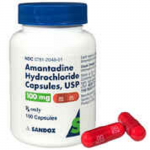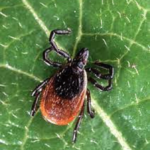Do not give ibuprofen to a dog without specific dosing instructions from your veterinarian.
Do not give ibuprofen to a cat under any circumstances!
 Ibuprofen has been available as a human pain reliever in the United States since 1974. Over-the-counter 200mg tablets have been available since the 80s and have names such as Motrin, Advil, and Nuprin.
Ibuprofen has been available as a human pain reliever in the United States since 1974. Over-the-counter 200mg tablets have been available since the 80s and have names such as Motrin, Advil, and Nuprin.
Ibuprofen is used for a wide range of pain in people and as a result is found in many homes and work spaces in the US.
Pet Exposure
When pets have pain, it’s hard to watch and many folks simply reach for what’s in their medicine cabinets. However, Ibuprofen like many other non-steroidal-anti-
what is safe for humans can be lethal to a dog or cat.
Non-Steroidal Anti-Inflammatory Drugs (NSAIDS)
Non-steroidal anti-inflammatory drugs (called NSAIDs) inhibit an enzyme called cyclooxygenase. This enzyme is involved in the production of inflammatory chemicals called prostaglandins. NSAIDs reduce the production of these prostaglandins.
The problem is, prostaglandins also help regulate blood flow to the stomach and intestinal lining as well as to the kidneys. In people, these effects are minor. But that is not the case with dogs and cats.
Stomach Ulceration
Ibuprofen has a very narrow safety margin in dogs and, since numerous safer medications are readily available, it is very rarely ever prescribed. Ibuprofen is too toxic for cats at any dose. A typical pill has 200 mg of ibuprofen so only a few pills can be toxic depending on the size of the animal.
The first level of toxicity involves ulceration of the stomach. This leads to vomiting with or without blood, appetite loss, and/or stools that are black from digested blood. The worst case scenario is rupture of the stomach leading to death. Repeated use of ibuprofen will increase the risk of toxicity even at doses that would not be toxic in single exposures.
Treatment involves intravenous fluids to restore circulation and medications to heal the ulceration as well as address vomiting and associated nausea.
Kidney Failure
The next level of toxicity occurs at higher doses. After interfering with blood flow to the stomach, the blood flow to the kidneys comes next. Reduced blood flow through the kidneys leads to death of kidney tissue. As kidney function decreases, toxins that the kidneys normally remove from the body begin to build up. Damage may be permanent or temporary depending on how much ibuprofen was ingested and how healthy the kidneys were prior to poisoning.
Cats are more sensitive to kidney failure effects than are dogs.
Neurologic Signs
The final level of toxicity is neurologic. At very high doses of ibuprofen, the patient will have tremors that can progress to outright seizures and ultimately coma. The patient will need to be supported with medications to control the involuntary muscle contractions until the ibuprofen is out of the patient’s system.
Treatment and Monitoring
As with other poisoning situations, if the patient is seen within an hour or possibly two, vomiting may be induced and decontamination (charcoal) can be given. This can be done at your veterinarian’s office or possibly as directed by a toxicologist at the Animal Poison Control Center (APCC, see below).
Because Ibuprofen toxicity is so common, a basic protocol has been put forth by APCC. Typically 48 hours of intravenous fluids are needed to support the stomach and kidneys. Kidney function tests must be monitored over three days and gastroprotects and anti-nasuea medication must be administered. Misoprostol is a prostaglandin protective to the stomach that can be given orally and is often included in treatment.
Prognosis depends on how much ibuprofen the pet was exposed, for how long, and how complete the treatment is.
Animal Poison Control Center is available 24 hours a day at 888-426-4435 and consultations cost approximately $65.00. If you have given your cat or dog Ibuprofen or another drug you are unsure about, call their center for advice. If medical help is needed, the Center can guide your veterinarian on the best treatment plan for your pet.
Urban Animal Veterinary Hospital
1327 Yale St
Houston, TX 77008
(713) 863-008


